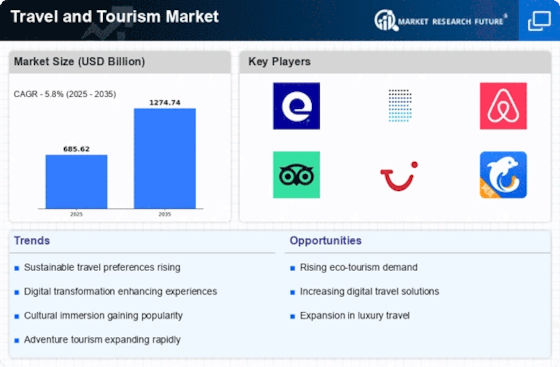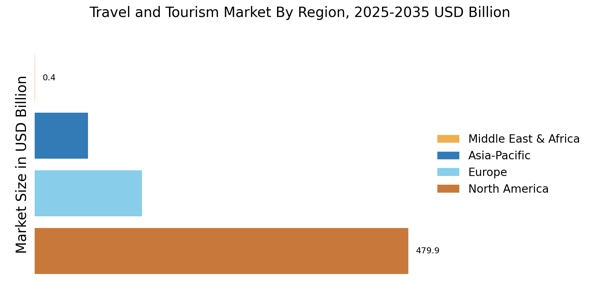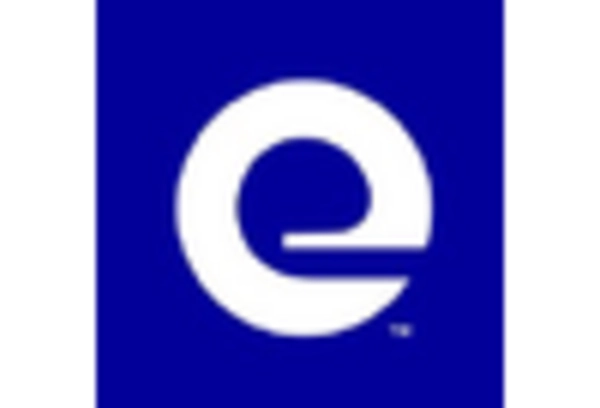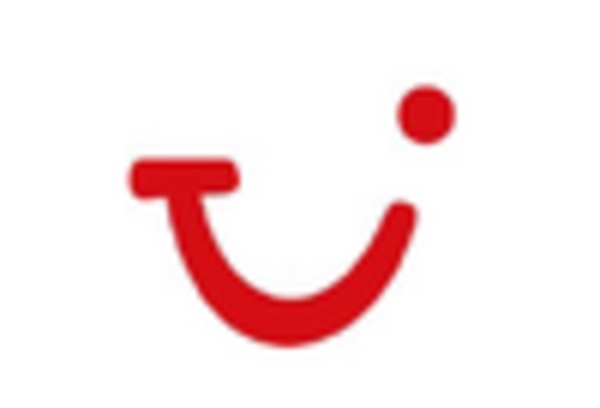Rising Disposable Incomes
The Travel and Tourism Market is experiencing a notable increase in disposable incomes across various demographics. As individuals and families find themselves with more financial flexibility, they are more inclined to allocate a portion of their budgets towards travel experiences. This trend is particularly evident in emerging economies, where a growing middle class is eager to explore new destinations. According to recent data, the average household expenditure on travel has risen by approximately 15% over the past few years. This increase in disposable income not only fuels domestic travel but also encourages international trips, thereby expanding the overall market. The Travel and Tourism Market is likely to benefit from this trend, as more consumers seek unique and enriching travel experiences.
Sustainability Initiatives
Sustainability initiatives are becoming increasingly vital in the Travel and Tourism Market as consumers demonstrate a growing preference for eco-friendly travel options. Travelers are more inclined to choose destinations and service providers that prioritize sustainable practices, such as reducing carbon footprints and supporting local communities. Recent studies indicate that approximately 70% of travelers consider sustainability when making travel decisions. This shift is prompting many companies within the industry to adopt greener practices, such as promoting eco-tourism and implementing sustainable resource management. As awareness of environmental issues continues to rise, the Travel and Tourism Market is likely to evolve, with sustainability becoming a key differentiator for attracting environmentally conscious travelers.
Technological Advancements
Technological advancements are reshaping the Travel and Tourism Market in profound ways. Innovations such as mobile applications, artificial intelligence, and virtual reality are enhancing the travel experience for consumers. For instance, mobile apps facilitate seamless booking processes, while AI-driven recommendations personalize travel itineraries. Furthermore, the integration of virtual reality allows potential travelers to preview destinations before making decisions. Data indicates that nearly 70% of travelers utilize technology to plan their trips, highlighting its significance in the industry. As technology continues to evolve, it is expected to further streamline operations and improve customer satisfaction, thereby driving growth in the Travel and Tourism Market.
Cultural and Experiential Travel
Cultural and experiential travel is emerging as a prominent driver within the Travel and Tourism Market. Travelers are increasingly seeking authentic experiences that allow them to immerse themselves in local cultures and traditions. This shift towards experiential travel is reflected in the growing popularity of activities such as culinary tours, cultural festivals, and community-based tourism. Data suggests that nearly 50% of travelers are willing to pay a premium for unique experiences that offer deeper cultural insights. As a result, destinations that promote their cultural heritage and provide immersive experiences are likely to see a surge in visitor numbers. This trend not only enriches the travel experience but also supports local economies, thereby enhancing the overall appeal of the Travel and Tourism Market.
Increased Focus on Health and Safety
The Travel and Tourism Market is witnessing an increased focus on health and safety measures, which has become a pivotal driver of consumer confidence. Travelers are now more discerning about hygiene standards and safety protocols when selecting destinations and accommodations. This heightened awareness has prompted many service providers to implement rigorous health measures, such as enhanced cleaning protocols and contactless services. Recent surveys indicate that over 60% of travelers prioritize health and safety when planning their trips. Consequently, destinations that effectively communicate their commitment to safety are likely to attract more visitors. This trend not only influences consumer behavior but also shapes the competitive landscape within the Travel and Tourism Market.

















